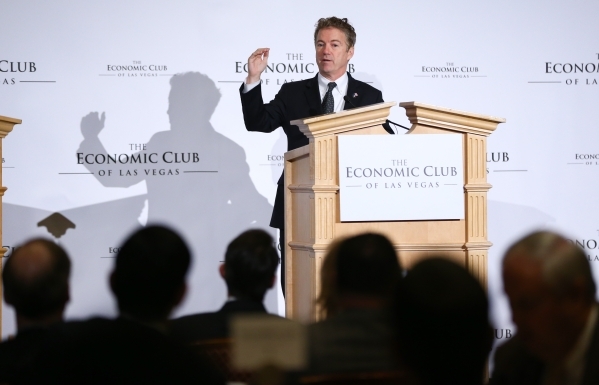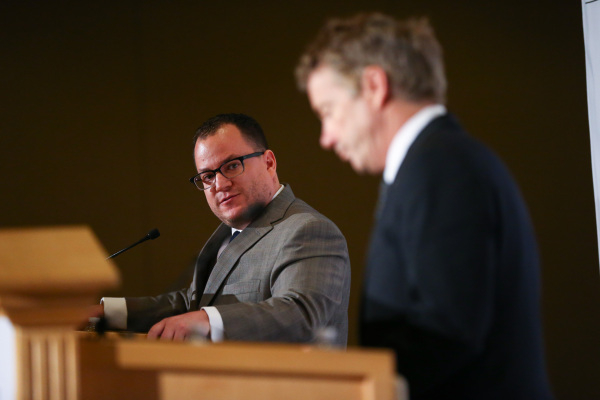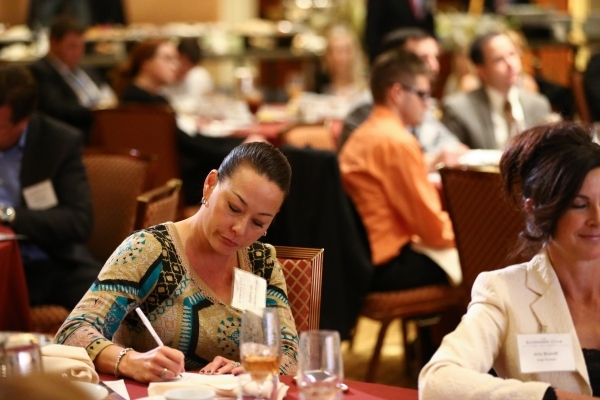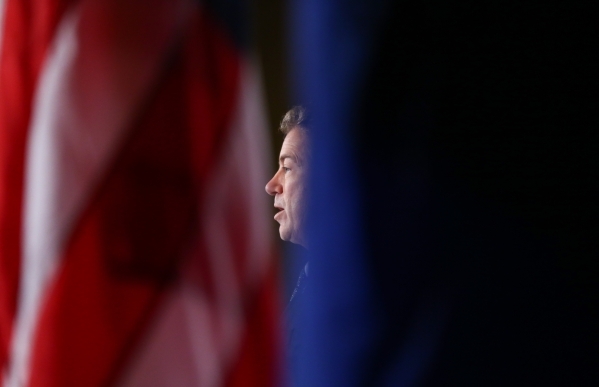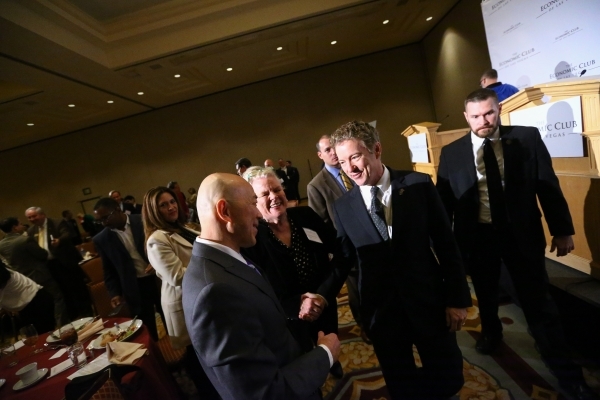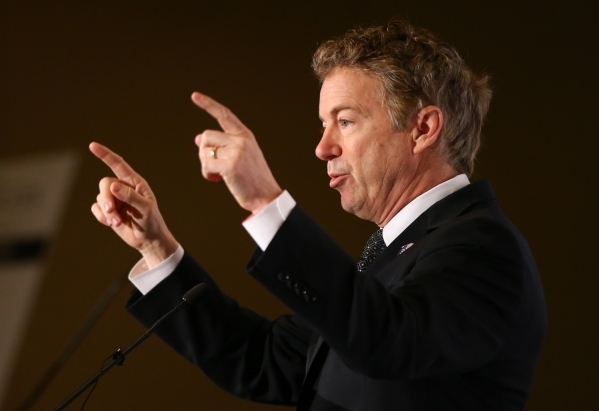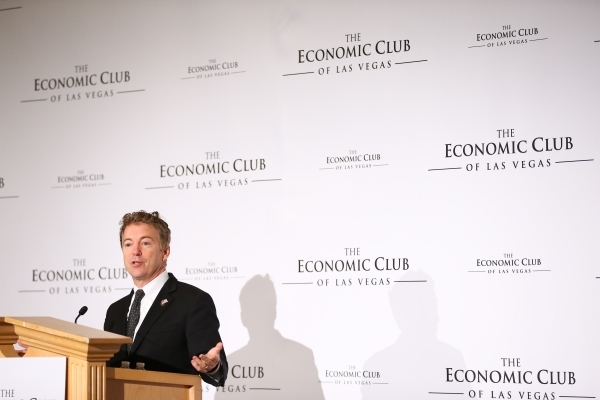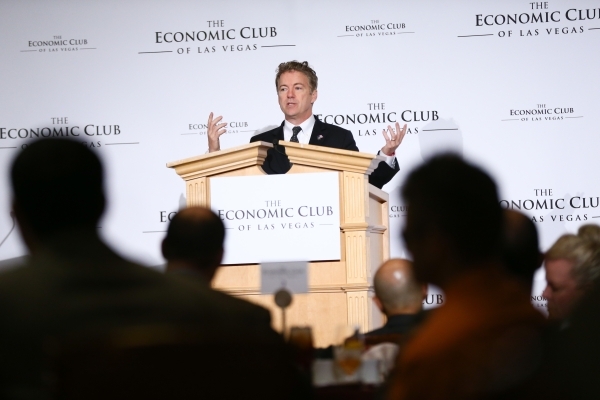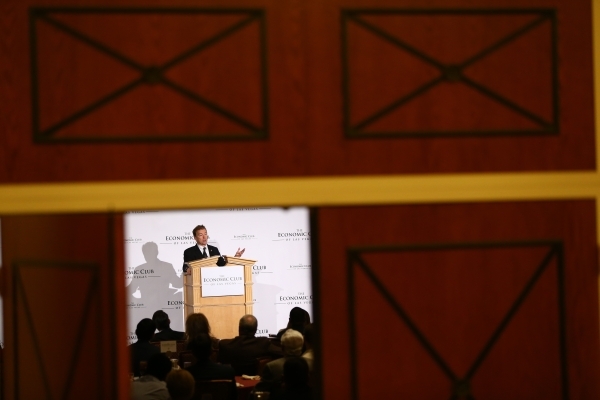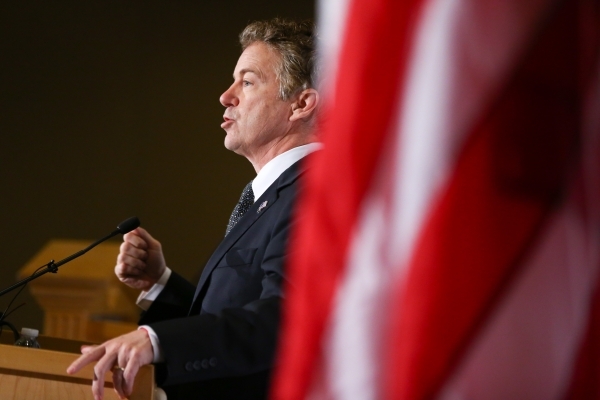Presidential candidate Paul ties Fed policies to Las Vegas real estate collapse
Southern Nevada's epic housing bust was a presidential campaign issue on Wednesday.
As the Federal Reserve announced its first interest-rate increase in about a decade, Republican presidential candidate and Kentucky Sen. Rand Paul blamed the central bank for its role in the Las Vegas Valley's — and nation's — housing bubble.
Paul, speaking to an audience of more than 110 at an Economic Club of Las Vegas luncheon inside Caesars Palace, linked Fed policies to the city's real estate struggles.
"I understand there was a little bit of a real estate bubble here. The question is, why did it occur?" Paul said.
He partly blamed cheap money — the low interest rates that made borrowing to build more affordable.
As building heated up in the boom, banks continued to give homebuilders inexpensive construction loans, Paul said. That's in contrast to what would have happened in a market-based rate climate: Rates would have risen as demand for money increased, and that dynamic would have put loans out of range for some builders and prevented overconstruction, he said.
"Everything slows down and people start taking precautions. You get a feedback," Paul said.
He called for a rate system that would be market-based, rising and falling with demand for loans.
"If we don't learn from the past, if we don't have a discussion of this, how are we ever going to prevent it from happening again?" he added.
Nevada's experiences with the Affordable Care Act also came up in a question-and-answer session after Paul's speech.
Nevada Health CO-OP, a nonprofit insurer created under the federal law to provide competition for existing insurers, announced in August that it would close because of high claims costs and "limited" growth forecasts.
Paul said the Affordable Care Act improved access to health care, but it also has forced up premiums. That's because a growing number of subsidized consumers means fewer paying people to carry the costs of coverage.
Paul said his fixes would include broad expansion of health savings accounts, plus options for higher deductibles that would encourage consumers to shop around for care. "Inexpensive plans" with high deductibles — $5,000 or $10,000 per consumer — are "illegal" now, Paul said.
Allowing people to buy multiyear insurance plans that would lock in premiums over a longer term would also help, he said.
Paul fielded a question about Yucca Mountain as well. His take on the proposed nuclear-waste site was succinct: "With land in general, I'd be inclined to give land back to the states and you decide what you want to do with Yucca Mountain," he said to applause.
Paul acknowledged he isn't polling well. He hovers in the 2 percent to 3 percent range among Republican primary voters.
But he added that he thinks the polls are wrong, and he has a good shot at winning Nevada. The state has 13,000 Republican caucus-goers, compared with about 30,000 Republican primary voters in Iowa.
He likened taking Nevada to "winning a city council race."
Contact Jennifer Robison at jrobison@reviewjournal.com. Find @_JRobison on Twitter.



